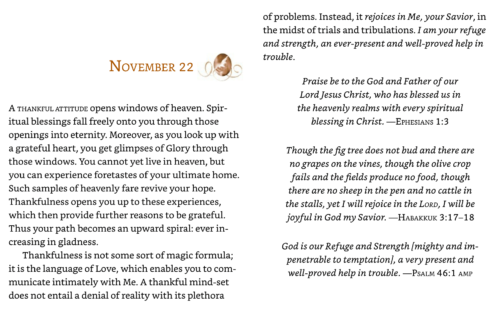The God Archetype
Father Richard shares the importance of archetypes for the soul’s encounter with God, which Jung explored in great depth.
Depth psychology tells us that our lives are guided by subconscious, ruling images which Jung calls archetypes. Jungian archetypes include the father, the mother, the eternal child, the hero, the virgin, the wise old man, the trickster, the devil, and the God image. These worldwide archetypes just keep recurring in different ways and form part of what he called “the collective unconscious.” These fundamental patterns show up in dreams and behavior in every culture, fascinate the soul, and appear in symbols and stories that go as far back in time as we can go.
For Jung, the God archetype is the soul’s whole-making function that drives us toward giving ourselves totally to something or someone, and initiates our desire for the absolute. It says to us: “Become who you are. Become all that you are. There is still more of you to be discovered, forgiven, and loved.” In the journey toward psychic wholeness, Jung stresses the necessary role of religion or the God archetype in integrating opposites, including the conscious and the unconscious, the one and the many, good (by embracing it) and evil (by forgiving it), masculine and feminine, the small self and the Big Self. I call this deep center of the psyche the True Self, the Christ Self, which has learned to consciously abide in union with the Presence within us (John 14:17).
Jung sees the unconscious as the seat of the “numinous,” where the God archetype lives. The Latin word numen is actually another word for the Divine. Something numinous is an awesome, wondrous experience that pulls you into a transcendent moment. Jung thus offers a foundation for rediscovering the soul and recognizing that soul both as within and yet shared with a much greater reality. God is not just out there! This essential insight overcomes the gap between transcendence and immanence.
Augustine (354–430) said much the same: “God is more intimate to me than I am to myself.” [1] Meister Eckhart (1260–1327) preached: Between God and the soul “there is neither strangeness nor distance.” [2] Yet most people have never been told there is a place to go to that’s called the soul. Soul is the blueprint inside of every living thing that tells it what it is and what it can still become. When we meet anything at that level, we will respect, protect, and love it. Much of religion, I’m sorry to say, doesn’t teach us or give us this essential light. It doesn’t help us understand the deep character of the Incarnation and how God has chosen our soul as God’s enduring dwelling place. We would have done much better to help other Christians discover their souls instead of always trying to “save” them.
Inner Authority
Father Richard often credits the Swiss psychotherapist Carl Gustav Jung (1875–1961) as one of his primary teachers, who greatly influenced his understanding of the human psyche, religion, and theology.
I first read Jung’s work in college, and again and again he would offer concepts that I knew were true. At the time, I didn’t have the education to intellectually justify it; I just knew intuitively that he was largely right. Jung brought together practical theology with very good psychology. He surely is no enemy of religion, as some imagine. When asked at the end of his life if he “believed” in God, Jung replied, “I could not say I believe. I know! I have had the experience of being gripped by something that is stronger than myself, something that people call God.” [1] I’m convinced he is one of the best friends of the contemplative inner life. He suggested the whole problem is that Christianity does not connect with the soul or transform people anymore. He insists on actual “inner, transcendent experience” [2] to anchor individuals to God, and that’s what mystics always emphasize.
One of the things Jung taught was that the human psyche is the mediation point for God. If God wants to speak to us, God usually speaks in words that first feel like our own thoughts. How else could God come to us? We have to be taught how to honor and allow that, how to give it authority, and to recognize that sometimes our thoughts are God’s thoughts. Contemplation helps train such awareness in us. The dualistic or non-contemplative mind cannot imagine how both could be true at the same time. The contemplative mind sees things in wholes and not in divided parts.
In an account written several years before his death, Jung described his early sense that “Nobody could rob me of the conviction that it was enjoined upon me to do what God wanted and not what I wanted. That gave me the strength to go my own way.” [3]
We all must find an inner authority that we can trust that is bigger than our own. This way, we know it’s not only us thinking these thoughts. When we are able to trust God directly, it balances out the almost exclusive reliance on external authority (Scripture for Protestants; Tradition for Catholics). Much of what passes as religion is external to the self, top-down religion, operating from the outside in. Carl Jung wanted to teach people to honor religious symbols, but from the inside out. He wanted people to recognize those numinous voices already in our deepest depths. Without deep contact with one’s in-depth self, Jung believed one could not know God. That’s not just Jungian psychology. Read Teresa of Ávila’s Interior Castle. The first mansion, where we first meet God, is radical honesty about ourselves, warts and all. Similar teachers include Augustine, Thérèse of Lisieux, Lady Julian of Norwich, Meister Eckhart, and Francis of Assisi.
